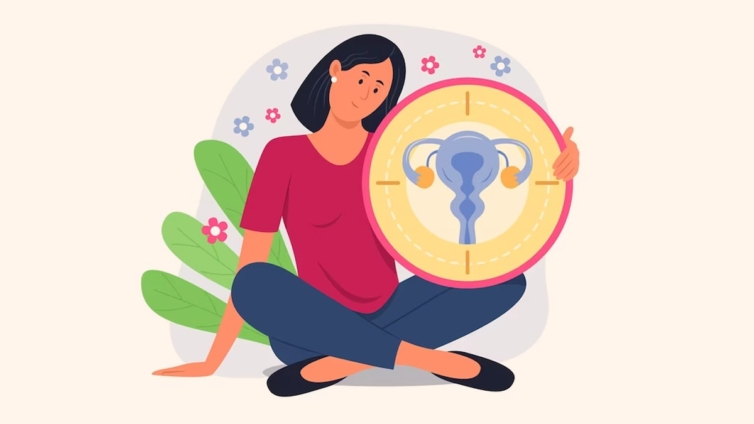In Ghana, like many parts of the world, menstruation is more than just a monthly biological event.
It intersects significantly with issues of gender equality, impacting education, economic opportunities, and social inclusion. Addressing menstrual health is crucial not only for the well-being of women and girls but also for the broader goals of gender equality and national development.
Menstruation is often surrounded by cultural taboos and misinformation in Ghana, which can result in shame and inadequate management practices. This silence and stigma have far-reaching implications for girls and women, affecting their health, educational attainment, and economic participation. The impact of menstruation on gender equality is profound: it is a critical issue that affects half the population, yet it is frequently overlooked in discussions about health and rights. Understanding and addressing menstrual health is vital for fostering a more inclusive and equitable society.
The Intersection of Menstrual Health and Gender Equality
Menstruation remains shrouded in stigma and silence in many Ghanaian communities. This cultural taboo often leads to misinformation, shame, and inadequate menstrual hygiene management (MHM). For many girls, the onset of menstruation can mark the beginning of a challenging period of social and educational exclusion. Lack of access to menstrual products and facilities forces numerous girls to miss school during their periods. According to a UNESCO report, one in ten African girls miss school during menstruation, which can amount to as much as 20% of the academic year. In Ghana, this statistic translates to thousands of lost educational opportunities, further widening the gender gap in education. Girls who miss school are less likely to perform well academically and are more prone to drop out, limiting their future economic prospects and perpetuating the cycle of poverty and gender inequality.
How Menstrual Hygiene Management Supports Broader Gender Equality Goals
Education and Empowerment
Improved Attendance.
Providing girls with access to affordable menstrual products and safe sanitation facilities ensures they can attend school consistently. Organizations like The Orange Girls Foundation have been pivotal in distributing reusable menstrual kits and educating communities about menstrual health. This initiative not only helps girls stay in school but also empowers them with knowledge about their bodies.
Educational Workshops
Integrating comprehensive menstrual health education into school curriculums helps demystify menstruation and promotes a supportive environment. Programs that involve boys and men in these discussions foster a more inclusive atmosphere, reducing stigma and encouraging gender equality from a young age.
Economic Opportunities
Workplace Inclusion
Ensuring menstrual hygiene facilities in workplaces enables women to work comfortably and productively, thereby enhancing their economic participation. Businesses that prioritize menstrual health demonstrate a commitment to gender equality and benefit from a more inclusive workforce.
Entrepreneurial Ventures. Supporting local entrepreneurs who produce and sell menstrual products can boost the local economy and provide women with sustainable income sources. For example, the establishment of local sanitary pad production units in Ghana not only addresses the issue of accessibility but also creates jobs for women, fostering economic independence.
Health and Well-being
Preventing Health Issues. Proper menstrual hygiene management prevents infections and other health complications, contributing to the overall well-being of women and girls. Healthy individuals are more likely to participate fully in educational and economic activities, thus supporting gender equality.
Mental Health Support
Addressing the psychological impact of menstruation through supportive policies and practices can significantly enhance the mental health of menstruating individuals. Reducing stress and anxiety related to menstruation allows women and girls to engage more fully in all aspects of life.
Policy and Advocacy
Government Initiatives. Advocacy for policies that ensure free or subsidized menstrual products in schools and public places is essential. The Ghanaian government's initiative to eliminate import taxes on sanitary products is a positive step towards making menstrual hygiene products more affordable.
Community Engagement
Grassroots movements and NGOs play a crucial role in raising awareness and driving change. Engaging community leaders and influencers can help shift cultural perceptions and promote a more open discussion about menstrual health.
Addressing menstrual health in Ghana is not just a matter of hygiene—it's a fundamental step towards achieving gender equality. By ensuring that girls and women have the resources and support they need to manage their menstruation with dignity, we can remove a significant barrier to their full participation in society. This not only enhances their individual potential but also contributes to the social and economic development of Ghana as a whole.
Menstrual health management is, therefore, a cornerstone in the broader quest for gender equality, empowering women and girls to thrive and lead.
***************

About the author; Nanayaa is a Public Relations professional who helps increase brand presence. She is a period poverty advocate who has been fighting against period poverty since 2017. Nanayaa believes that girls' education must be protected. Email: nanayaaamoako62@gmail.com.
Latest Stories
-
Trinity Oil MD Gabriel Kumi elected Board Chairman of Chamber of Oil Marketing Companies
34 minutes -
ORAL campaign key to NDC’s election victory – North America Dema Naa
52 minutes -
US Supreme Court to hear TikTok challenge to potential ban
57 minutes -
Amazon faces US strike threat ahead of Christmas
1 hour -
Jaguar Land Rover electric car whistleblower sacked
2 hours -
US makes third interest rate cut despite inflation risk
2 hours -
Fish processors call for intervention against illegal trawling activities
2 hours -
Ghana will take time to recover – Akorfa Edjeani
2 hours -
Boakye Agyarko urges reforms to revitalise NPP after election defeat
3 hours -
Finance Minister skips mini-budget presentation for third time
3 hours -
‘ORAL’ team to work gratis – Ablakwa
3 hours -
Affirmative Action Coalition condemns lack of gender quotas in Transition, anti-corruption teams
3 hours -
December 7 election was a battle for the ‘soul of Ghana’ against NPP – Fifi Kwetey
3 hours -
Social media buzzing ahead of Black Sherif’s ‘Zaama Disco’ on December 21
3 hours -
Afenyo-Markin still suffering from the massive defeat – Fifi Kwetey
3 hours

